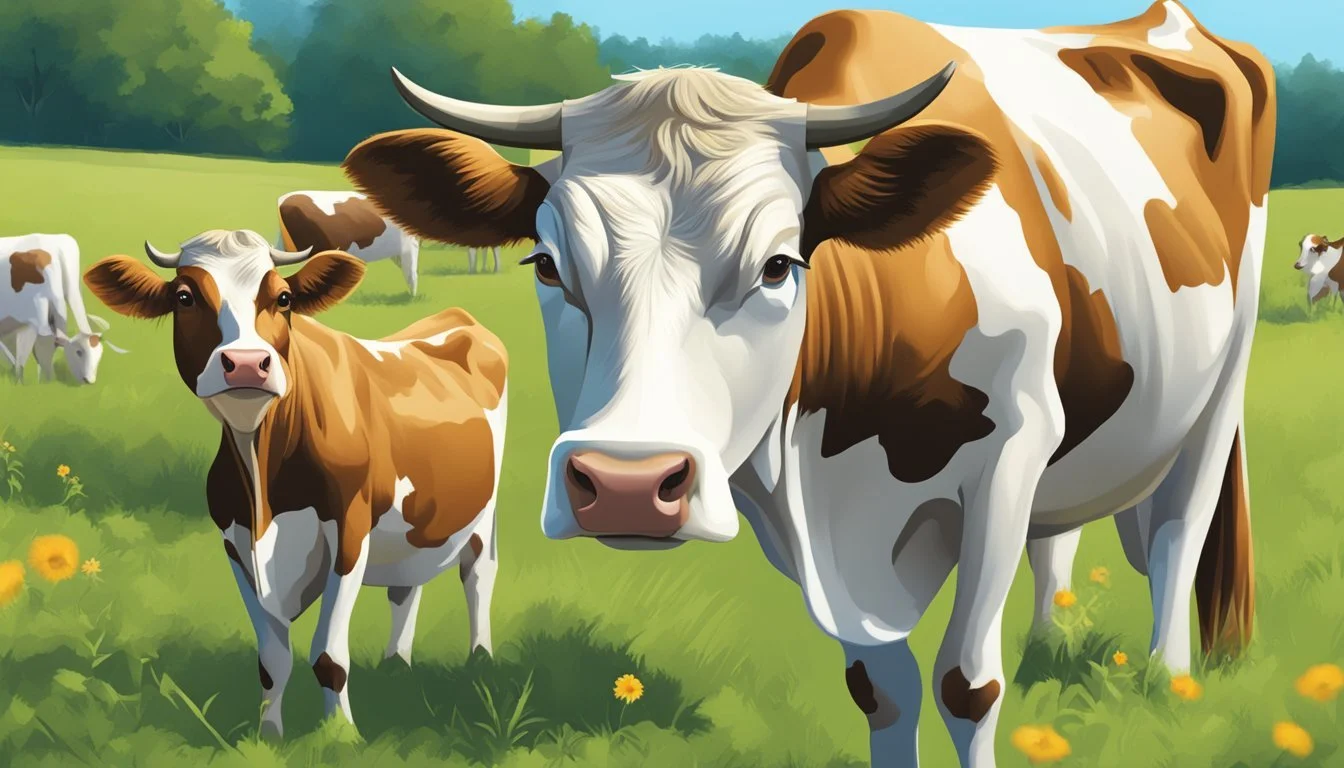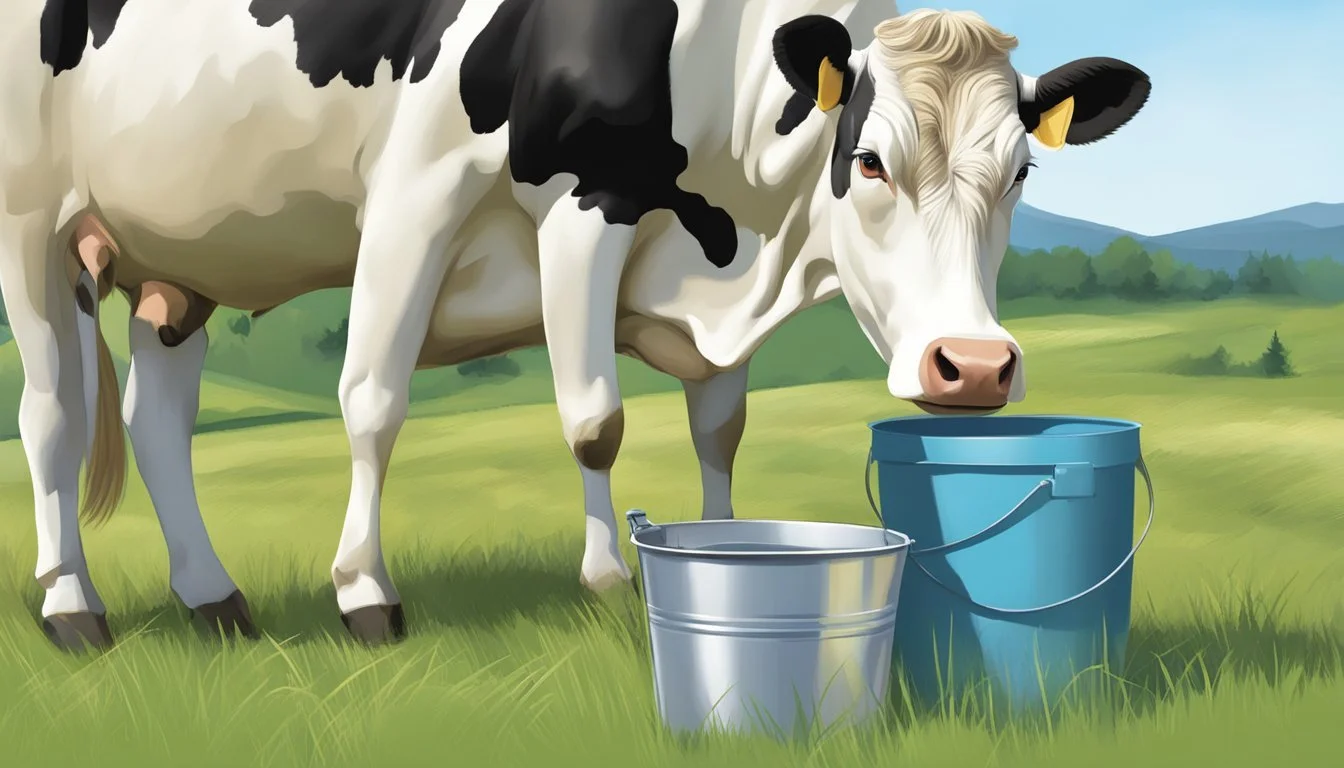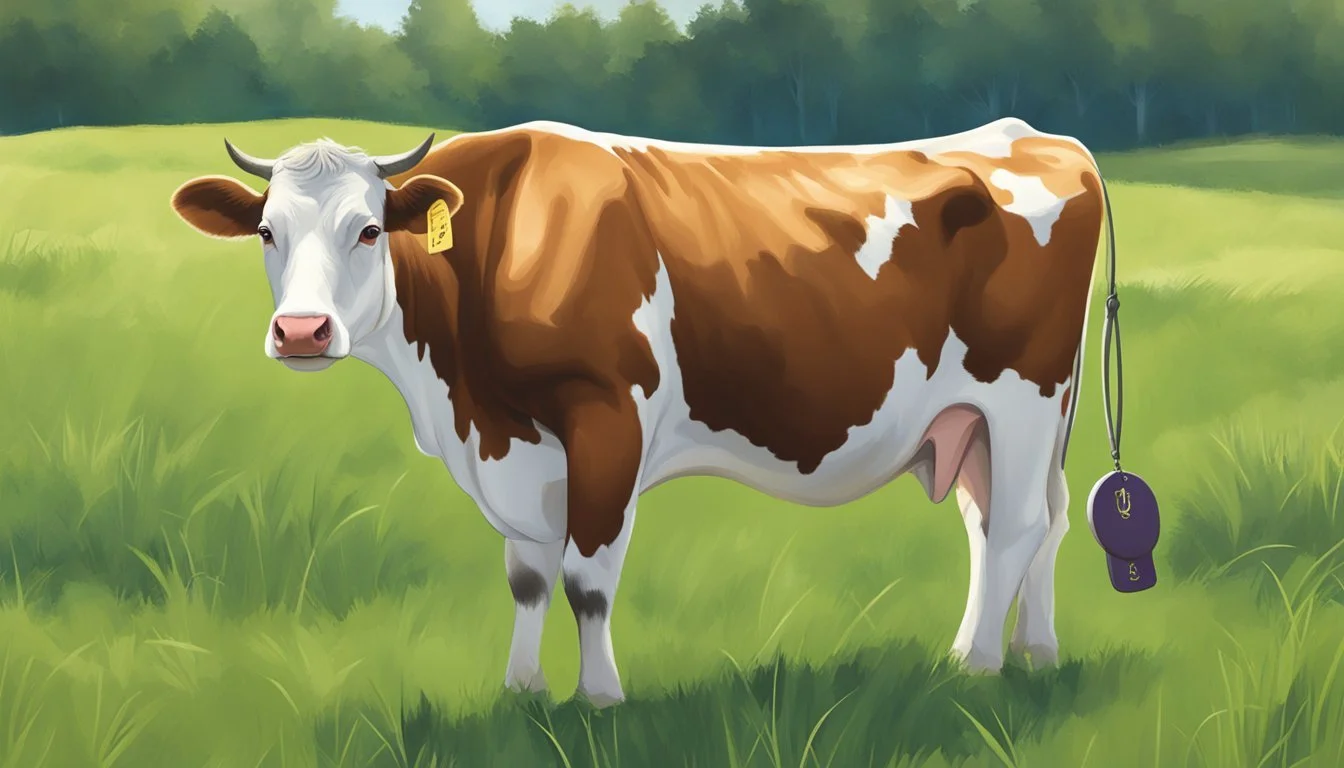What Does A2/A2 Mean in Cows
Understanding Milk Protein Variants
When discussing cow's milk and its composition, the term "A2/A2" refers to a specific type of milk that is characterized by its protein content. Milk contains several types of proteins, including caseins, which make up a significant portion of its protein content. Among the caseins, beta-casein (B-casein) is noteworthy because it exists in different genetic variants; the two most common being A1 and A2. The designation "A2/A2" indicates that the milk contains only the A2 variant of B-casein protein.
The relevance of A2/A2 milk lies in the genetic makeup of the dairy cows that produce it. In some cows, their genes dictate that they produce milk containing only the A2 type of B-casein, without the A1 variant. The interest in A2/A2 milk is based on claims that it may be easier to digest for some individuals and might confer health benefits as compared to regular milk; however, these claims are yet to be conclusively proven by scientific research.
Understanding A2/A2 in Cows
The differentiation between A2/A2 and A1 in cows relates to the type of B-casein protein they make when they produce milk contains, impacting digestibility and health attributes.
Genetic Background of A2/A2
The A2/A2 designation in cows refers to a specific genetic mutation within the gene responsible for beta-casein production, a major protein in milk. Cows with this mutation have two copies of the A2 gene variant, leading them to produce only A2 Beta Casein protein. Identification of these cows can be accurately achieved through a genetic test.
Characteristics of A2 Milk
The A2 milk cows produce is characterized by its production exclusively from cows that carry the A2/A2 gene variant. The A2 B-casein is a form of protein that may be easier for some people to digest. However, A2 milk still contains lactose, the sugar found in all milk, and is not suitable for people with lactose intolerance.
Comparison to A1 Milk
In contrast to A2 milk, A1 milk contains the A1 beta-casein protein. Some individuals believe that this variant of the protein can be harder to digest and might lead to discomfort. However, scientific research has not conclusively supported these claims. Both A1 and A2 milk types contain lactose and are essentially similar in nutritional content.
Health Implications
When discussing the health implications of A2/A2 milk, it's important to distinguish between lactose sensitivity and allergies or sensitivities to certain proteins in milk. The following subsections delve into the specific impacts and concerns related to these areas.
Impact on Lactose Intolerant
Lactose intolerance is characterized by a deficiency in lactase, the enzyme required to digest lactose, the sugar found in milk. It is important to note that A2/A2 milk contains the same amount of lactose as conventional milk. Therefore, A2/A2 milk does not offer a remedy for lactose sensitivity. However, it may benefit those with gastrointestinal symptoms linked to inflammation caused by A1 B-casein, not lactose.
Chronic Conditions and Allergies
The protein composition in A2/A2 milk might influence chronic conditions and allergies. Some studies suggest that A1 beta-casein may elicit a different immune response than A2 beta-casein, potentially affecting the risk of type 1 diabetes, heart disease, autism, and schizophrenia. People with a casein allergy might find A2/A2 milk more tolerable because it lacks A1 beta-casein, which has been implicated in causing allergic reactions and digestive issues in some individuals.
General Health Benefits
The discussion on the general health benefits of A2/A2 milk is ongoing, and claims about its superiority are not conclusively supported by current scientific evidence. Some propose that A2/A2 milk might be easier to digest and may reduce some forms of inflammation due to the absence of A1 beta-casein. However, a definitive link between A2/A2 milk and improved health related to cancer, diabetes, or heart disease has not been established.
Dairy Industry and Economics
In the context of the dairy industry, A2/A2 milk has become a point of differentiation, potentially influencing market demand, production strategies, and herd management practices to enhance profitability.
A2 Milk Market and Demand
The market for A2 milk has grown significantly, particularly in countries like the United States, Australia, and New Zealand. The A2 Milk Company, originating in New Zealand, capitalized on the demand for milk containing only A2 beta-casein. This demand is shaped by consumers seeking alternatives that may alleviate health issues attributed to conventional milk, such as stomach discomfort. Moreover, A2 milk is often marketed as containing healthy fats, aiming to cater to health-conscious demographics.
Production and Profitability
Dairy farmers in North America and elsewhere are observing the economic impact of incorporating A2/A2 animals into their herds. The ability to market A2 milk as a premium product allows for potential profitability increases. To get a piece of the premium pie, farmers are adapting their production processes. This includes investment in genomic testing to identify cows with the desired A2/A2 genetics at a cost of around $5 per animal, which can be seen as a venture into value-added dairy production.
Breeding and Herd Management
Farm management incorporates strategic breeding programs which are key to establishing herds that consistently produce A2 milk. Utilizing genomic tests to identify A2/A2 animals allows farmers to make informed breeding decisions. Efficient herd management and breeding can take multiple generations, translating to a significant long-term commitment for the producer. The feed and care of A2-producing cows do not significantly differ from conventional cows, enabling existing dairy operations to transition without drastic changes in their infrastructure.
Consumer Considerations
Consumers often consider the composition and nutritional value of milk, the difference between raw and processed milk, and how to identify and purchase A2 milk when making dairy choices.
Milk Composition and Nutrition
Milk contains several key components, including proteins, fats, sugars, and various minerals like calcium. A2 milk specifically refers to milk that contains the A2 type of beta-casein protein. Beta-casein exists in two main forms: A1 and A2, and it is the A2 type that some consumers seek out due to digestion preferences or other personal reasons. While the protein structure is a focus, A2 milk also generally contains other milk constituents such as whey protein, fat, and calcium, which are essential for human nutrition.
Protein/Amino acids: A2 milk has a similar protein content to regular milk, offering both casein and whey proteins.
Fat: The fat content in A2 milk resembles conventional milk, which includes saturated fats.
Sugar: Lactose is the main sugar found in A2 milk, as it is in other types of cow's milk.
Calcium: Dairy products are known for their calcium content, and A2 milk provides a comparable amount.
Raw vs. Processed A2 Milk
The market offers A2 milk in both raw and processed forms. Raw A2 milk is milk that has not been pasteurized or homogenized. Some consumers prefer it, claiming benefits such as a richer taste and natural enzyme content. However, health authorities often recommend pasteurized milk to avoid potential pathogens. Processed A2 milk has been treated for safety and shelf life and can be found in various forms, such as whole, skimmed, or lactose-free milk.
Raw Milk: May contain natural enzymes, but there is a risk of harmful bacteria if not handled properly.
Processed Milk: Safer for consumption due to pasteurization and can have a longer shelf life.
Identifying and Purchasing A2 Products
For consumers interested in purchasing A2 dairy products, it's important to know how to identify them. A2 milk is often distinctly labeled, making it easy to recognize. One can find A2 milk at health food stores, supermarkets, or dairy farms that specialize in A2 cattle breeds. It's vital to look for the A2 protein label or other certifications that indicate the product is legitimate A2 milk.
Labels: Look for clear "A2" or "A2 beta-casein" labels on the packaging.
Certifications: Trusted seals or certifications that assure the dairy product's A2 status.
Breed-Specific Information
When discussing A2/A2 in cows, it is important to consider the breed-specific propensities for this genetic variant. These differences are paramount for dairy farmers and breeders who are targeting the production of A2 milk.
Breeds With Higher A2/A2 Frequency
Certain breeds of cattle are more likely to carry the A2/A2 genetic variant. Notably:
Jersey and Guernsey cows have a naturally higher frequency of the A2 β-casein type.
The Brown Swiss breed also shows a relatively high prevalence of the A2 allele.
Other breeds like Normande have populations that carry the A2/A2 genotype, though statistics on frequency vary.
The specific mutation in the β-casein gene determines whether it produces the A1 or A2 form of the protein. This mutation is less prevalent in Holsteins, making the A2/A2 type less common in this breed compared to the Jersey cow or Guernseys.






